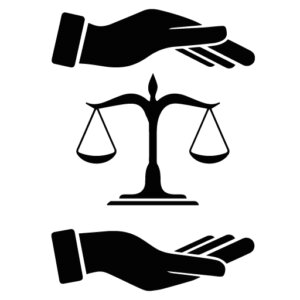Best Franchising Lawyers in Dominican Republic
Share your needs with us, get contacted by law firms.
Free. Takes 2 min.
Or refine your search by selecting a city:
List of the best lawyers in Dominican Republic
About Franchising Law in Dominican Republic
Franchising in the Dominican Republic is becoming an increasingly popular business model, primarily due to the country’s growing economy and consumer market. The legal framework governing franchising in the Dominican Republic is designed to ensure fair practice and protect both franchisors and franchisees. Although there is no specific franchising law, it is regulated under commercial law, intellectual property laws, and contract law. Franchisors must adhere to these legal frameworks to successfully operate within the Dominican market.
Why You May Need a Lawyer
While embarking on a franchising journey can be an exciting venture, there are several situations where legal assistance may be necessary:
- Contract Negotiation: A lawyer can help negotiate terms to ensure they are favorable and fair.
- Understanding Local Laws: Franchising involves various legal components that can be complex for someone unfamiliar with Dominican law.
- Dispute Resolution: In case of disagreements between franchisors and franchisees, a lawyer can mediate and propose solutions.
- Compliance Issues: Ensuring that the franchise adheres to local regulations, including labor and tax laws.
- Intellectual Property Protection: Legal assistance in safeguarding trademarks and proprietary information.
Local Laws Overview
Franchising in the Dominican Republic is primarily regulated through a series of legal areas:
- Contract Law: Contracts must be thoroughly crafted to include essential elements such as duration, fees, territory, and obligations of both parties.
- Commercial Code: This governs business operations and registration requirements for franchises operating in the Dominican Republic.
- Intellectual Property Laws: Crucial for protecting trademarks and ensuring that brand elements are legally covered.
- Arbitration Laws: Provide mechanisms for resolving disputes without litigation, an attractive option for franchising agreements.
- Tax Regulations: Franchises must comply with local taxation, including income tax, VAT, and other relevant fiscal policies.
Frequently Asked Questions
1. What is a franchise disclosure document (FDD), and is it required in the Dominican Republic?
An FDD provides prospective franchisees with detailed information about the franchisor and franchise opportunity. While not specifically required by Dominican law, it is advisable for transparency and to build trust.
2. How is a franchise agreement structured in the Dominican Republic?
Franchise agreements should include terms such as duration, renewal rights, financial obligations, control measures, and termination conditions.
3. Are there restrictions on foreign franchisors operating in the Dominican Republic?
While there are no specific restrictions, foreign franchisors must comply with local business registration and tax laws.
4. What role does the local culture play in franchising in the Dominican Republic?
Understanding local consumer preferences and cultural nuances can affect the success of a franchise. Customization may be required to meet local tastes and expectations.
5. How are franchise disputes typically resolved?
Disputes may be addressed through arbitration or litigation, depending on the terms set out in the franchise agreement. Arbitration is often preferred for its efficiency.
6. What are the primary considerations for franchise location and territory?
Considerations include market saturation, demographic analysis, and proximity to target customers. Location agreements should clearly define territories to avoid conflicts.
7. Can franchise agreements be terminated prematurely?
Termination conditions should be explicitly stated in the agreement. Common causes include breach of contract, insolvency, or significant underperformance.
8. Are there any governmental bodies overseeing franchises?
No single body oversees franchises, but franchise operations must comply with the regulations enforced by different government departments, such as taxation and intellectual property offices.
9. Are franchises subject to specific advertising standards?
Franchises must adhere to the Dominican Republic's advertising laws to ensure truthfulness and fairness in their marketing practices.
10. Is renewal of a franchise agreement guaranteed?
Renewal is not automatically guaranteed. It should be detailed in the agreement, often contingent upon performance and adherence to contract terms.
Additional Resources
For further information, consider consulting the following resources:
- Chamber of Commerce of the Dominican Republic: Offers insights and support for business operations in the country.
- Intellectual Property Office of the Dominican Republic: Guidance on trademark registration and protection.
- The Dominican Association of Franchises: A professional body that provides resources and networking opportunities for franchise operators.
- Legal Firms Specializing in Franchising: Some law firms in the Dominican Republic focus on franchising law and can offer tailored advice.
Next Steps
If you believe legal assistance is necessary for your franchising endeavors in the Dominican Republic, consider the following steps:
- Consult with a lawyer specializing in franchising law to understand your specific needs and obligations.
- Gather all relevant documents, including initial franchise agreements and business registration details.
- Prepare any questions or concerns you have in advance of your consultation to ensure you make the most of your time with legal professionals.
- Contact local business associations or government bodies for additional guidance and support.
Taking these measures can help ensure that your franchise operates smoothly and in compliance with local laws.
Lawzana helps you find the best lawyers and law firms in Dominican Republic through a curated and pre-screened list of qualified legal professionals. Our platform offers rankings and detailed profiles of attorneys and law firms, allowing you to compare based on practice areas, including Franchising, experience, and client feedback.
Each profile includes a description of the firm's areas of practice, client reviews, team members and partners, year of establishment, spoken languages, office locations, contact information, social media presence, and any published articles or resources. Most firms on our platform speak English and are experienced in both local and international legal matters.
Get a quote from top-rated law firms in Dominican Republic — quickly, securely, and without unnecessary hassle.
Disclaimer:
The information provided on this page is for general informational purposes only and does not constitute legal advice. While we strive to ensure the accuracy and relevance of the content, legal information may change over time, and interpretations of the law can vary. You should always consult with a qualified legal professional for advice specific to your situation.
We disclaim all liability for actions taken or not taken based on the content of this page. If you believe any information is incorrect or outdated, please contact us, and we will review and update it where appropriate.
Browse franchising law firms by city in Dominican Republic
Refine your search by selecting a city.














